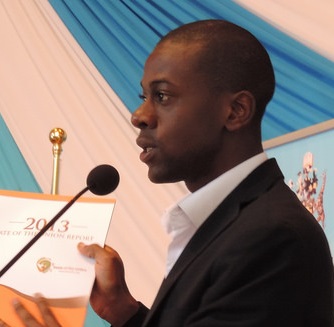13
Jul
I attended the recent third assembly of the African Grantmakers Network (AGN) in Arusha, Tanzania. It was the first time I participated in an AGN assembly, and I had many expectations. In general, it is an excellent opportunity to meet with leading organizations in the field of philanthropy in Africa as well as other funding agencies working in Africa.
My reflection is on a session titled ‘Using Practice to Influence Policy: Rural Women’s Leadership for Equitable Food Systems, Social Justice, and Civic Mobilisation in East and West Africa’ that took place Thursday 2 July 2015.
This session was an opportunity for women from Burkina Faso and Tanzania to share their experiences working with grassroots groups to promote agro-ecological policies for food security and sovereignty in Africa.
Those women represented hundreds of rural women’s associations including ‘We Are the Solution’, which works in Burkina Faso, Mali, Guinea, Ghana and Senegal. Listening to those women sharing their achievements and challenges, I couldn’t stop wondering why the world seems not to be listening to them. These rural women farmers and their organizations and networks warn of the dangers of consuming genetically modified organisms (GMOs) to our ecosystem.
But few people turned up to hear their presentations. I kept asking myself ‘don’t African people want to learn how to be healthy by eating organic food? Don’t African people want to take charge of their food systems by refusing to depend on companies such as Monsanto that want to control their soils and seeds?’
Since I was attending an assembly of African grantmakers, a more puzzling question was why more major grantmakers do not support the work of those small initiatives by rural women farmers.
The message of those rural women is that the future of food security and sovereignty in Africa depends on supporting small-scale farmers.
I support this view because for the following reasons:
- Small-scale farmers in Africa know what we need to consume and that is what they produce.
- Small-scale farmers, if supported, also know how to take care of our soil and land, and can preserve organic seeds that are free of health hazards.
- Finally, large-scale industrial farming dispossesses many African farmers of land, thus taking away their independence in deciding what they consume and produce.
But, the remaining question is how do we help to amplify the voices of rural women farmers who promote agro-ecological farming so that their message is heard all over the world?
Since we are talking about African grantmakers, this is what I think they could be doing to support more small-scale farmers, especially women, who produce more than 70 per cent of the food we consume. The following actions would be very useful:
- Support groups of rural women farmers to pass on agro-ecological practices they have learned from their ancestors.
- Help more farmers strengthen their leadership capabilities so they can better organize their networks and coalitions and confidently communicate their messages to the world.
- Support more women farmers to better conserve their seeds and harvest and access markets for their produce.
- Support rural women farmers’ advocacy work so that they can better communicate their messages on agro-ecology and family farming.
- Finally, build an Africa-wide network of rural farmers including both men and women so that our leaders get the message and come up with policies that promote and protect agro-ecological practices.
African leaders tend to listen when a mass of people repeat the same message. There is a need to create a strong African movement for healthy food, independence of our soil, and freedom of using our seeds. This is, in my view, what African grantmakers ought to be focusing on because it is an issue that affects all of us.
Yves Niyiragira is Executive Director of Fahamu Africa.
